Kate Connolly reports from the village where Trump’s grandfather was born, but finds more affection for its other famous family
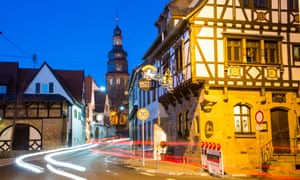
Drumb, Tromb, Tromp, Trum, Trumpff, Dromb … the Trump family name has had various permutations over the past five hundred years, according to the local church register.
Yet nowadays there are few traces of a clan that once had a stronghold in the village of Kallstadt in south-west Germany. There is no plaque outside the house where Friedrich Trump, the grandfather of US presidential hopeful Donald, was born in 1869.
The only hint is in the few gravestones, overgrown with shrubs bearing the name in the local cemetery, and the faint outline where once “Trump” was set in wrought iron above a bunch of silver grapes at a winery that went bankrupt several years ago.
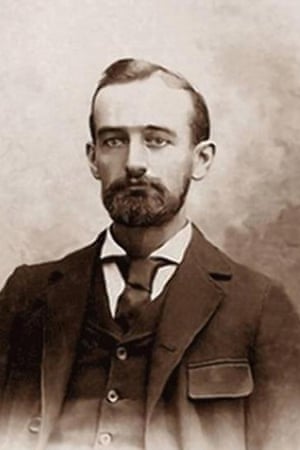
“I don’t see what all the fuss is about,” said Hans-Joachim Bender, a retired vintner, sitting at his dining room table looking out onto the vineyards he used to farm. “If you’re here to talk about Donald Trump, I don’t have an opinion about him one way or another except sometimes he’d be wiser to hold his tongue.” Like everyone here, Bender pronounces the name in the local Palatinate dialect as “Droomp”.
However long one looks at 73-year-old Bender, it is hard to see any likeness with the New York property tycoon. There is none of the blonde double combover hair, and unlike Trump – a teetotaller – Bender enjoys a drop or two of his own homemade Riesling wine. And yet, like several people in this village of 1,200 inhabitants, he is related to the business magnate.
“My great great grandma was Friedrich’s mother,” he says. “But I don’t know what that makes me to Donald.” His grandmother was one of the last Trumps. And, he casually remarks, his grandfather was a Heinz – as in ketchup.
“Both the Trumps and the Heinzes came from the village,” explains Simone Wendel, a Kallstadter filmmaker, who pulls out a family tree to explain her own Trump connection. “My mother’s cousin was married to the grandson of Donald Trump’s great uncle. Or something like that.”
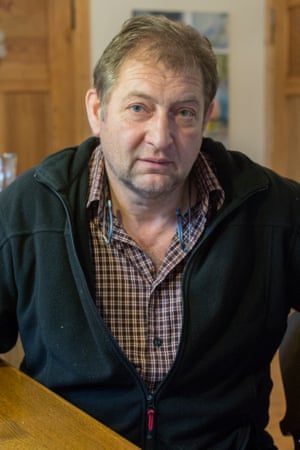
Bernd Weisenborn, a 54-year-old vintner who says he is a second cousin once removed to Donald, explained the story in his wine tavern, surrounded by bottles of some of the 180,000 litres of Rieslings and Merlots he produces every year.
“In 1885, when he was 16, Friederich, Donald’s grandfather, left a note for his mother on the kitchen table saying he had gone to America.” So local legend has it, he had not wanted to work in the family vineyard, or take up as a barber, a job for which he had trained.
“His motivation to do so was that as the sixth child of a poor family, he had little to keep him in Kallstadt,” Weisenborn said.
Fritz Geisel, Donald Trump’s second cousin takes up the story in Wendel’s 2014 film documentary Kings of Kallstadt.
“He went to the Yukon gold mines in Alaska. Being a man of weak constitution he didn’t want to break his fingernails himself … so he opened up a restaurant and provided vast amounts of food and drink for the gold miners, accepting payment in gold nuggets.”
Some also say prostitutes were among the services he provided. But the Kallstadters are hesitant to go into that, preferring instead to focus on the nuggets that Friederich sent back to his sisters in New York. The sisters had already emigrated to the United States, and used the nuggets to buy up real estate.
Trump is discussed in the village a lot these days, though it is mainly a subject brought up by visitors on the trail of “The Donald”, rather than the villagers themselves, who readily admit to finding it all a little trying.
They would prefer to talk instead about the ice wine from Kallstadt that was served at the coronation celebrations of Queen Elisabeth, or how former German chancellor Helmut Kohl used to dispatch his driver Ecki, to the Saumagen Paradies (Pig Stomach Paradise) butchers to pick up his favourite dish of the same name.
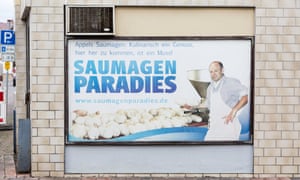
Local records document how Friederich returned to the village several years after his initial departure, now rich and renamed Frederick, and married Elizabeth Christ, the girl next door, with whom he returned to the US.
“She was desperate to settle down in Kallstadt, but although he was a wealthy man, the authorities governing at that time didn’t allow him to stay, on account of his having skipped military service and so he was deported,” Wendel explains.
“So you know to blame the Germans if you want to hold someone responsible if Donald Trump becomes the next US president,” says Uli Meyer, another vintner, stopping for a chat as he cycles through the village.
The couple went to the US with their daughter and Donald Trump’s father, Fred, on the way. But at the age of 49, Frederick died in the flu epidemic of 1918, leaving Elizabeth, still homesick for Kallstadt, having to fend for her teenage boys. She set up the real estate business, E Trump and Sons, the base upon which the family went on to build and buy up New York real estate.
“So if there is a hero in all this”, points out Wendel, “it should really be Elizabeth.” Elizabeth is still remembered with affection, not least by those who recall how she returned to Kallstadt twice, including to celebrate her 80th birthday in 1950.
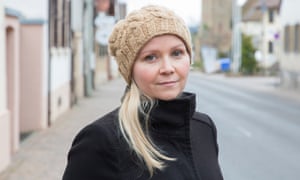
Wendel has spent years searching for what she calls the “Kallstadt gene”, something that would explain the village’s disproportionate amount of success stories relative to its size. “I’ve been asking myself for decades, ‘can it be a coincidence that two such giants have their roots in my own little village’,” she says.
“We’re very down-to-earth,” says Weick, the restaurateur, over a meal of the speciality stuffed pig’s stomach dish. “We cook with water, you know. And every housewife here is capable of producing ketchup, though here we just call it tomato sauce”. It is said to be a bit thinner than Heinz’s, but also comes in a wide range of varieties.
Most people in the village would prefer not to be drawn on Trump’s politics, though they acknowledge the irony in the success of a man who has garnered support for criticising migrants being founded on the success of his grandfather, himself an economic migrant.
“As a well-known Kallstadt phrase goes: ‘Before you put your mouth into gear, be sure to turn your brain on’,” says Weisenborn, the second cousin once removed. “But just as everyone in Kallstadt appreciates good performance you have to hand it to him that he’s clearly touched a nerve with the people. But let’s just say, if he comes to visit, I’ll stick to talking about our forefathers.”
There was a time when Trump was embarrassed to admit his German connection, to the extent that he denied it. His repeated references to himself as Swedish even prompted the Swedish town of Karlstad to begin planning a museum in his honour.
Only in the 1980s did Trump relent. In Kings of Kallstadt he made perhaps his frankest admission on the subject yet. “I have great German heritage. I’m very proud of it. Great place,” he said. “They grow ‘em well in Kallstadt … very well. Believe me, it’s good stock.”
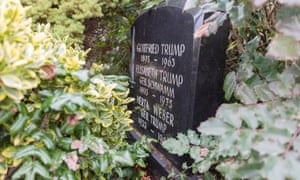
The family’s reluctance to acknowledge their Germanness had much to do with hostility levelled at German-Americans during the first world war, while after the second world war the Trumps’ qualms continued as many of their customers were Jewish Holocaust survivors.
The Kallstadters take it on the chin that Donald was cautious about revealing his origins, but their reluctance to heap praise nevertheless suggests more than just a little reserve towards him. “It was the Heinz family who donated the money for the organ restoration fund,” says Peter Grieger the senior village caretaker, recalling how 15 years ago they gave the village a donation of €40,000. The Heinzes have also endeared themselves by returning to the village for occasional holidays, although they are careful to remain incognito.
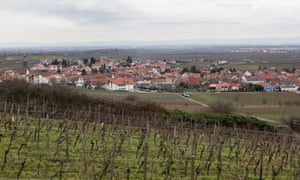
The house where Friedrich Trump was born is very much still standing – a solid, modest, unadorned stone structure with a sign on its blue backyard gate revealing the Kallstadters’ dry humour: “God sees everything, my neighbour even more.” Wendel said she showed Trump a photograph of it when she met him. “He seemed very taken by it, by its solidity, how well-maintained it was,” she said.
What the man who has said he would return all refugees back to Syria, and who has vociferously opposed Merkel’s open door policy, would also no doubt notice about Kallstadt, is its dearth of refugees. There are none.
No one will admit that they have any interest in watching what happens to Trump as the US presidential primary season, beginning in Iowa on Monday, progresses.
“But God help us if he wins,” said the mayor. “Then everyone will want to come to Kallstadt.”
“It’s certainly not that we’re not open to them,” the mayor, Thomas Jaworek, said. “As I said in my new wear’s speech, ‘no refusal of entry, either for refugees or for Donald Trump’.” The village’s economic success – driven by its booming wine industry – means there is no spare room, however, so refugees have been placed in neighbouring towns. “Property prices have been going through the roof,” Jaworek adds, just in case the property tycoon was considering buying his ancestral home back.














